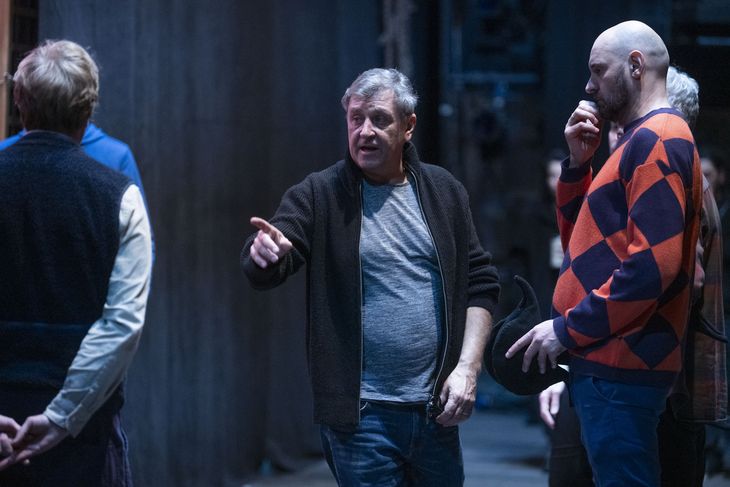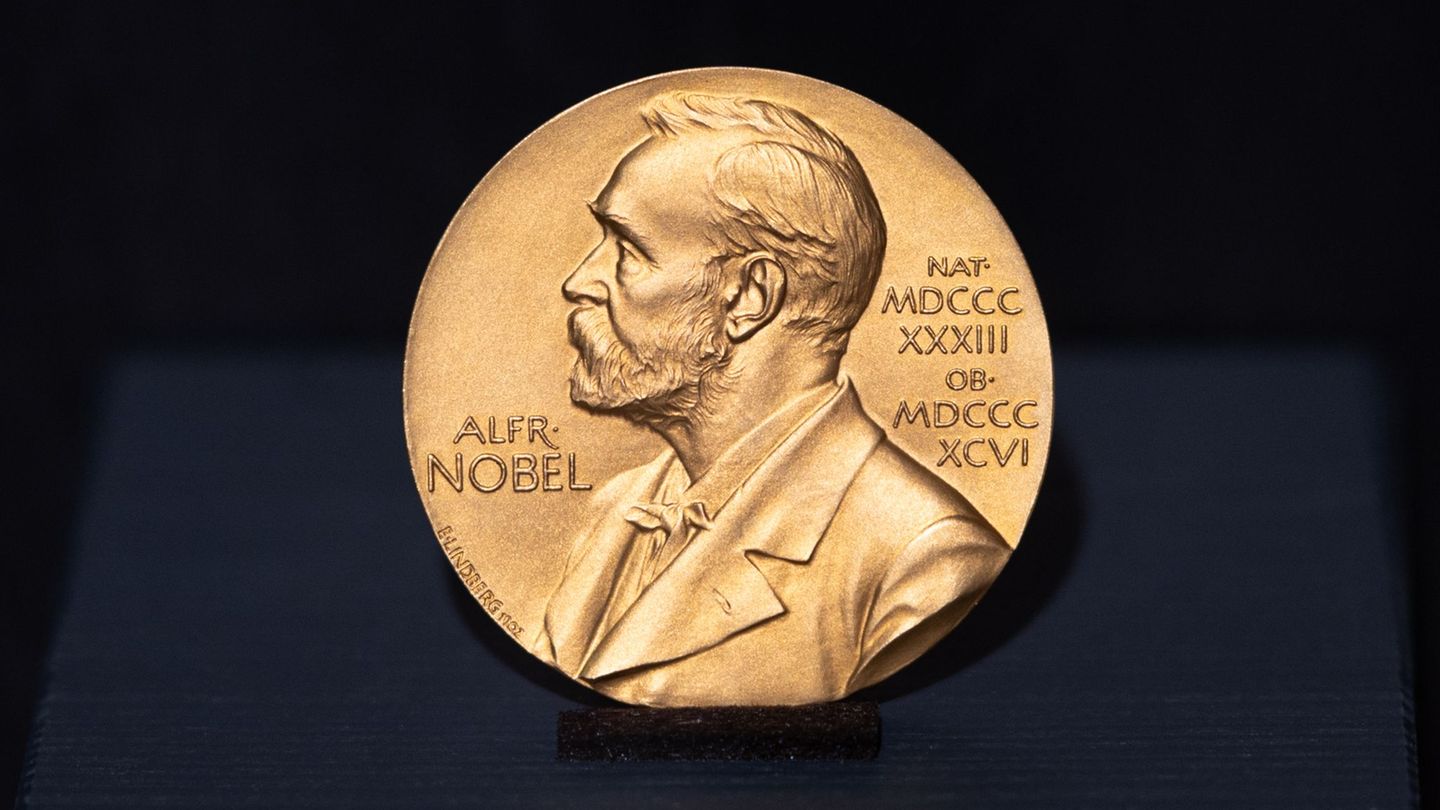We dialogue with Lombardero.
Journalist: It is not the first time that you do “Billy Budd.” Yes in Argentina.
Marcelo Lombardero: This production had an interesting genesis. We thought about it from the municipal of Santiago, Chile and the Argentine of La Plata in 2012, when I was still its director, because the following year was the centenary of Brittenand the Britten Foundation granted a very important subsidy for what they call “peripheral theaters.” We obtained it, but a problem occurred with those funds, which does not come to remember now and that caused my resignation to the Argentine direction. As the project was Boyando I looked for an alternative theater so that production would not be frustrated, and there appeared Rio de Janeiro, who took the stop, and then it could be done, first in Santiago and then in Rio. That was in 2013.
Q.: It was not the first time that the premiere of “Billy Budd” in Argentina was postponed.
ML: The story is curious. First he had been scheduled in the early 80s, but obviously, by Malvinas, he left aside, and later Sergio Renán was scheduled for the subscription he had founded, the contemporary. “Billy Budd” was one of the projects that was frustrated, and the other was “El Gran Macabro”, by Lighti.
Q.: It is not an opera that is frequently represented in the theaters of the world.
ML: Despite its beauty, there are several reasons. First, the complexity required by putting. Then, because it is a story of men exclusively, there are no female roles, there is no love story. Forster and Britten set out to make an opera on the well -known topics, the abuse of power, violence over the weakest, repression, pacifism.
Q.: That difference between legality and justice that we are talking about before reminds me of a more or less contemporary English film, that of Joseph Losey “for the homeland” (“King and Country”). It takes place in World War I, and the captain who interprets Dirk Bogarde is obliged to execute the soldier (Tom Courtenay), by martial law, although he knows that he commits an injustice.
ML: It’s true. There is also an extraordinary film version of “Billy Budd”, directed and played by Peter Ustinov, such as Captain Vere, and Terence Stamp as Billy.
Q.: Let’s go back to the opera. It takes place at the end of the 18th century.
ML: Yes, shortly after the French Revolution, in the times of the riots on board. Life in this English warship is the world. The powers of the State are exemplified in that ship; the great power that is the king (on the ship, the captain); Its officers, who repress the social base of this ship, which are the sailors, generally recruited by force. The fear of rebellion, due to abuse, is constant.
Q. On that axis the clash between the fair and the legal is exposed.
ML: On the one hand, there is the idea of failed legality, of laws written by powerful to protect those powers; A law that defends those from above with a police power that represses. This exceeds justice: the legal order is imperfect and is made to protect interests. I do not see work with greater active than this, I would say that it is almost journalistic. Well, I don’t say it, Melville, Britten, and Forster say it.
Q.: How is musically?
ML: It is a great opera, written in the 50s, with a personal language that owes nothing to the avant -garde. In fact, Britten was a composer much belittled by the avant -garde after the Second War, precisely because he wrote operas. There were other composers to which the same thing happened, such as Poulenc or Henze. They were composers who escaped at the forefront, to that idea of bourse that “the revolutionary act was to burn an opera theater”, or that the opera was a bourgeois show. Britten builds shows that could even be popular, both “Peter Grimes” and “Billy Budd” have those conditions. There are those great coral scenes, duos, Arias.
Q.: And visually it is a large deployment opera.
ML: Enormous. There are 22 solo papers, and then there are 8 groups of male choirs. The only white voices correspond to children, who were employed in the boats of those times and were called “Powder Monkeys”, because they reached the most remote places of the ship. The structure is clearly operatic, it has the conditions of the great operas of Verdi, or of the great French, or Russian opera. From the musical point of view it is built from sailor songs, music regarding the sea.
Juanjo Bruzza02.jpg
Lombardero at another time for the “Billy Budd” essays at the Colón Theater. Photo: Juanjo Bruzza.
Original Conception
Q.: Did you set it at the same time as it takes place?
ML: Yes, in this case I thought it necessary.
Q.: Of course, unlike traditional titles, “Billy Budd” lacks that tradition in the colon, which would leave a little meaning to confront its original setting with others.
ML: Not just for that. We, those of us who do opera, demand too much to the public: that it feels in the room, to listen to the music, that understands the text, and after it also understands what we want to say when we modify an original concept. It is a great demand. Therefore, before a work as complex as “Billy Budd”, I think it must be presented in that original concept.
Q.: The same time, costumes and place.
ML: I think that resignification would bother history. It is not just about the change of time: in the “Macbeth” of Verdi, which I made in the Columbus, that change was necessary, although there was a public that was bothered by not seeing the characters with the Scottish pollerites. Opera is not a costume parade. But in this case there are historical data that are raised in the book, and that I did not change not because it cannot be done, but because they clarify the story, make it more powerful. It is understood, for example, what is forced recruitment … now that there are many who are so excited to return to the colimba … I did it for 18 months, leaving the dictatorship, and I do not recommend it at all to the parents who support it. Nor would it be understood, if change, fear of riot, legal order, terror and hatred towards France, to the forced fight against people who were going to free them. In short, it seems to me that resignifying it is to kill the metaphor so clear that there is in Britten.
Q.: Operator, in what tradition is inscribed?
Ml: The work has an inheritance of “Wozzeck”, especially in the structural issue, and there are also things by Shostakovich, of whom Britten was a friend and admirer, so there are elements that remember “Lady Macbeth of Mtsensk.” Now, I live huming fragments of this work because Britten was not afraid of tone, traditional harmony. When you use atonal elements, it does so for expressive reasons, in the same way as Puccini, but its main base is tone, in that sense it is simpler than “Peter Grimes”, which is its most famous title.
Q.: Are there differences with the original setting of Santiago and Rio?
ML: There are technological advances regarding a set of 12 years ago, but basically the criteria are the same. It has deployment, videoprojes. I never considered modifying that setting, which responds to what I did at that time, such as “Tristan and Isolda” and “Parsifal”. I have a great discussion with my colleagues: I do not consider myself a creator, I consider myself an interpreter as stage director. Except when I believe my own show, but when I take a material I am interpreting it.
Mexico
Towards October last year, Marcelo Lombardero He was appointed artistic director of the National Opera Company of Mexico. Our dialogue ended with that theme.
Q.: Let’s talk a little about his work at the head of the Opera Directorate in Mexico.
ML: I am very happy, I love being part of this historical process of Mexico, even if I look at it a bit of the outside because it is not there, but I’m sorry in society. The Secretary of Culture, Claudia Curiel, who was the one who summoned me, gives me great support. He wants strong institutions, so he put together a team of professionals. The National Arts and Literature, the Inbal, depend on all the stable bodies in all the arts, very solid organisms, and with a strong presence of the State. I direct the National Opera Company, which uses theaters such as the Palace of Fine Arts, which is a theater in addition to a museum.
Q.: And the next season will be the first or entirely yours?
ML: No, this one. We started with “Romeo and Julieta” by Berlioz, a coral symphonic concert directed by the teacher Stefan Lano. Then the official opera season opened it with “Lady Macbeth of Mtsensk”, by Shostakovich, in the version we made in La Plata. It was a total success in the five functions that were done, and I clarify that there is no system of fertilizers as the Columbus has; We had a Tenor Gala Javier Camarena, then “Rigoletto”, with two casts from great Mexican singers. Mexico has a fabulous singing school, and that is noticed today in the world. In almost all the world’s great opera theaters, there is always some Mexican in the cast. Then we made a gala with the tenor Arturo Chacón Cruz, who will soon sing “Werther” in El Colón, and now we are a great challenge that is the South American premiere of “A Re in Ascolto” (1984), by Luciano Berio, which has been made in concert version but never with staging. The centenary of Berio and 40 years of the death of Italo Calvino is fulfilled, in one of whose stories the opera is based. I hate the representations based on ephemeris, but sometimes they serve us to refloat forgotten and valuable works.
Source: Ambito
I am an author and journalist who has worked in the entertainment industry for over a decade. I currently work as a news editor at a major news website, and my focus is on covering the latest trends in entertainment. I also write occasional pieces for other outlets, and have authored two books about the entertainment industry.




